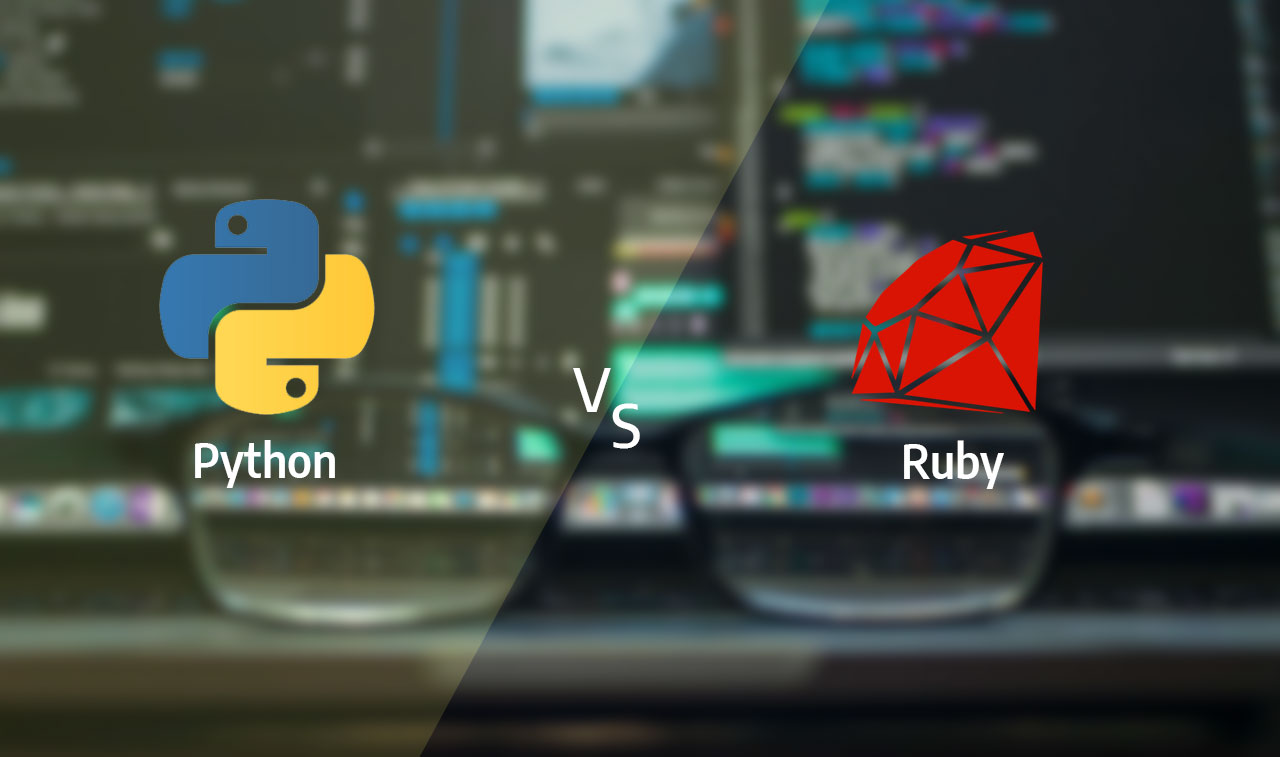A tough question that goes through the mind of all web developers. Ruby vs Python. Which one is better? Both of them are popular languages suited for developing web applications. In short, it’s the clash of the Titans.
The Language
Python is inspired by languages like C/C++, Java, Perl, Lisp, and ICON. Python believes in “only one best way to do a particular thing”, thus being strict on indentation and layout, even the amount of whitespace to use. Therefore Python is said to be easy to learn and extremely readable.
Ruby is influenced by languages like C, Java, Perl, and C++. Ruby believes in “language’s code should always cause as little confusion as possible for the developer.” Ruby makes use of blocks or first-class objects. A block is treated as a unit within the program, resulting in the language to be extremely potent, combining with the use of lambdas and functional programming. Additionally, Ruby takes the OOP concept to a great extent.
The Frameworks
Ruby on Rails is the popular web framework built using the Ruby programming language while the most popular web framework built using the Python programming language is Django.
The Similarity
Being high-level, object-oriented scripting languages, both Python and Ruby have similar performance. They both come with standard libraries, an interactive shell, and persistence support and are excellent choices for web development.
The Differences
Ruby and Python take a different approach to solve problems.
Ruby is flexible and empowers the programmers. Ruby on Rails allows the developers to perform many little tricks to make an elegant web framework. The flexibility seems to be magical at times but this could even do harm at times. Sometimes code works when you didn’t expect it to and leaves you feeling really impressed. Other times the tracking down bugs could be hard and will cost you hours.
Python follows a more direct approach to programming. The aim is to ensure that everything is clear to the programmer. Python loses the elegance that Ruby gives but makes it easier to learn the code and debug problems.
Ruby showcases the flexibility of the language while Python focuses on the directness and readability of the code. Ruby focusses on giving the programmers the freedom to adopt the approach they want. Python emphasis on the ease of use and learning in a single right way of doing something. As a result, Python developers are conservative in their approach and the developments and new features of Django are added slowly. On the other hand, Ruby developers enjoy the freedom and change they get resulting in the Rails framework to undergo constant changes.
The Community Support
Both Python and Ruby both have huge community support, influencing in the direction of the language, updates, and the way software is built.
Python has a much more diverse community than Ruby as there are many academic use cases in both Math and Science that Python resulting in the support in those areas. Python is also installed on almost every Linux systems making it the perfect language for server usage.
Ruby’s started to gain popularity since Rails came out in 2005. The Ruby community grows quickly around Rails and focused on web development. The community gets more diverse with time, but it does not have the same diversity that Python has.
Major Users
Python has been used by many companies including Google, Pinterest, Instagram, National Geographic, Mozilla Firefox, and the Washington Post.
Ruby on Rails is the popular web framework built using the Ruby programming language while the most popular web framework built using the Python programming language is Django.
Ruby has been used by companies like Apple, Twitter, Airbnb, Shopify, Hulu, Github, and Groupon.
The Verdict
It’s still hard to point out which language is the better one. Each language has preferred areas where they are better, due to the features and support they provide. If you are into developing web applications, go with Ruby on Rails. They have a very strong community who are always on the bleeding edge. If you are interested in developing web applications but would also like to learn the language more generally, focusing on academic and scientific programming, go for Python and Django. They have a diverse community, influenced and supported by the various industries.
